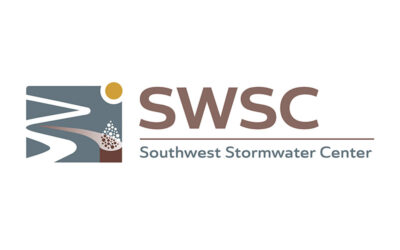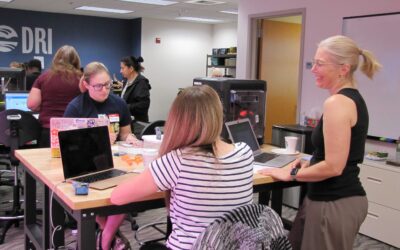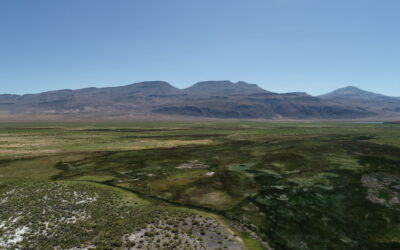
Reno, Nev. (September 10, 2024) – Guo Yu, assistant research professor of hydrometeorology, along with collaborator Luke McGuire from the University of Arizona, received a three-year grant from the USGS Water Resources Research Act Program. The funding will be used to expand his work examining how repeated wildfires impact flooding risk in communities. In a study based on this research published in December 2023, Yu found that peak floods can be up to three times larger in the first year following a large wildfire. When a severe wildfire burns through a landscape, soil-stabilizing plant roots are lost, while the soil itself can turn water-repellent, enhancing flood risk. The research uses the concept of flood frequency analysis as a tool to estimate the relationship between the severity of flooding and the probability that it will occur.
The new funding will allow Yu and a future doctoral student to improve on the framework by accounting for the impacts of climate change, such as lengthened vegetation recovery time in drought years, on flooding risk.
“This research is critical for understanding how increased wildfire risk under a changing climate will impact flooding risk to western communities,” Yu says.
The $300,000 USGS grant was matched by DRI and the University of Arizona, providing $600,000 total over three years for the research. Yu anticipates hiring a Ph.D. student through the Graduate Program of Hydrologic Sciences to begin work on the project in 2025. Prospective students who are interested in this project can contact Guo Yu directly.
In addition to the research, the award will be used to support the DRI STEM Education Program’s educator professional development trainings on fire ecology. The trainings invite Nevada K-12 teachers to DRI campuses in Reno and Las Vegas to offer scientific training on focused topics for educators to transmit to their students. Many of the trainings are paired with educational kits known as Green Boxes, which are prepared by the STEM Education Team in partnership with DRI scientists and offered free to schools statewide.
“Sixty years ago, DRI helped initiate what has become the USGS Water Resources Research Act Program, and currently hosts the Nevada Water Resources Research Institute. We’re proud to contribute to the program’s goal of using robust scientific research to resolve the West’s water problems while training future scientists,” says Sean Mckenna, executive director of hydrologic sciences at DRI.
– @driscience –
More information: Preparing for the Floods That Follow the Fires, a research interview with Guo Yu and Jeremy Giovando
About DRI
We are Nevada’s non-profit research institute, founded in 1959 to empower experts to focus on science that matters. We work with communities across the state — and the world — to address their most pressing scientific questions. We’re proud that our scientists continuously produce solutions that better human and environmental health.
Scientists at DRI are encouraged to follow their research interests across the traditional boundaries of scientific fields, collaborating across DRI and with scientists worldwide. All faculty support their own research through grants, bringing in nearly $5 to the Nevada economy for every $1 of state funds received. With more than 600 scientists, engineers, students, and staff across our Reno and Las Vegas campuses, we conducted more than $47 million in sponsored research focused on improving peoples’ lives in 2023 alone.
At DRI, science isn’t merely academic — it’s the key to future-proofing our communities and building a better world. For more information, please visit www.dri.edu.
Media Contact
Elyse DeFranco
Science Writer, DRI
Elyse.defranco@www-dev.dri.edu


